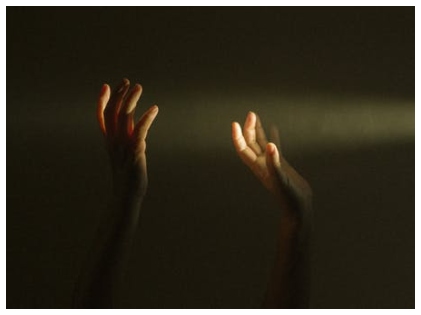
Four Psychological Signs That Tell You Need Sleep to Protect Your Mental Health

 Most of us nowadays have schedules that are hectic with work or school that 24 hours doesn’t seem to be enough to get everything done. With that limited amount of time, most people tend to cut back time on the activity that we do every day – sleep.
Most of us nowadays have schedules that are hectic with work or school that 24 hours doesn’t seem to be enough to get everything done. With that limited amount of time, most people tend to cut back time on the activity that we do every day – sleep.
While it’s fine to lessen the amount of sleep that we get for a couple of days or two, it isn’t a healthy thing to do. Doing it for several consecutive days can bring about several harmful effects on our mental health, as well as our physical body, which can lead to long-term problems. When we lack sleep, our whole mind and body suffer – it affects our mental process, we experience mood swings, and the body functions don’t work as well as they should.
Some several signs and symptoms display the effects of sleep deprivation. Although our body suffers, as exhibited by signs and symptoms like indigestion, vision changes, and a weakened immune system, it isn’t just the physiological aspect of our body that is affected by lack of sleep. The psychological element – the emotional and mental capacities also face an impact of sleep deprivation. These can lead to several problems like accidents, injuries, falls, and issues in socialization, relationships, work, and more. Just what are these psychological signs and symptoms of sleep deprivation?
Memory Problems
You may think back on moments when you can’t remember specific details or get that particular memory back in your head. After staying up all night, sometimes your mind tends to weaken, and you might have trouble remembering things. Memory problems aren’t surprising whenever you lack sleep.
Several studies have shown that sleep plays a crucial factor when it comes to maintaining the sharpness of our memories. This is because sleep allows the connections of nerve cells to stay active, providing a suitable pathway for neural signals which can transmit memories. The lesser amount of sleep that you get, the fewer the nerve cell connections that you have – this results in the faulty short term or long term memory — reflecting in the form of forgetfulness, inability to recall details, and poor memory overall.
Decreased Concentration
 The brain is responsible for the several mental functions that we are capable of. One of these functions is concentration, which is very important in our daily lives as it helps us accomplish tasks throughout the day. When you lack sleep, you may notice that you can’t focus on a particular job, pay attention, or listen. These can be signs of sleep deprivation.
The brain is responsible for the several mental functions that we are capable of. One of these functions is concentration, which is very important in our daily lives as it helps us accomplish tasks throughout the day. When you lack sleep, you may notice that you can’t focus on a particular job, pay attention, or listen. These can be signs of sleep deprivation.
A good example is during class. You have trouble concentrating on what the teacher is talking about. You would instead doze off or distract yourself with other things. This might be a sign that you lack sleep. Studies have shown that those students who don’t get enough sleep have poor results on their tests, which require their concentration. Besides, they tend to overestimate their abilities. It’s often their population group that thinks lack of sleep isn’t something serious, and missing out on a few hours of sleep won’t be affecting their concentration. That’s where they’re wrong. Someone who gets six hours of sleep every night will significantly perform better than a person who only sleeps four hours every night.
Poor Decision-Making
Restorative sleep is essential in maintaining our presence of mind. Someone who lacks sleep tends to make decisions haphazardly, which often leads to harmful results. Poor decision making is one of the symptoms of sleep deprivation, which can significantly affect work or school performance and social relationships as well.
Mood Swings
 When you lack sleep, your threshold against stress reduces significantly. That would mean it won’t take much effort to piss you off in normal situations. It leads to the instability of your mood, which can swing back and forth from happy to angry to sad, and so forth. By getting enough sleep, we can manage our emotions with little or no problems at all. Even when we experience tense moments, as long as we’re well-rested, we can still handle the situation without exploding.
When you lack sleep, your threshold against stress reduces significantly. That would mean it won’t take much effort to piss you off in normal situations. It leads to the instability of your mood, which can swing back and forth from happy to angry to sad, and so forth. By getting enough sleep, we can manage our emotions with little or no problems at all. Even when we experience tense moments, as long as we’re well-rested, we can still handle the situation without exploding.
However, all that changes if you have sleep deprivation. It can irritate you quickly and even with the smallest thing. It can tick off at random things that don’t usually get on your nerves.
Getting enough sleep is truly important in protecting one’s mental health. Studies have shown that lack of sleep may lead to depression, feeling burnt out, and decreased degree of empathy. Those who are already experiencing depression or other mental conditions may have their signs and symptoms aggravated even more because of a lack of sleep.
More in Mental Health
-
`
5 Reasons Why Dad’s Side of the Family Misses Out
Family bonds are intricate and multifaceted, often creating a unique tapestry of connections. However, many people notice a peculiar trend: stronger...
July 12, 2024 -
`
A Quick Guide on How to Get Short-Term Disability Approved for Anxiety and Depression
Living with anxiety or depression poses unique challenges, particularly in the workplace, where stress can exacerbate symptoms. For many, short-term disability...
July 5, 2024 -
`
Why Do People Feel Sleepy After Eating?
Is feeling sleepy after eating a sign of diabetes? Well, not directly. There are many reasons why you feel drowsy after...
June 20, 2024 -
`
What Is High-Functioning Depression? Symptoms and Treatment
High-functioning depression may not be a term you hear every day, but it’s a very real and challenging experience for many....
June 13, 2024 -
`
Kelly Clarkson’s Weight Loss Ozempic Journey – Debunking the Rumors
In a refreshing moment of transparency, Kelly Clarkson, the beloved singer and talk show host, sheds light on her remarkable weight...
June 3, 2024 -
`
What Is the Best Milk for Gut Health and Why?
In recent years, the milk section at the grocery store has expanded far beyond the traditional options. While cow’s milk has...
May 30, 2024 -
`
Do Dental Implants Hurt? Here’s All You Need to Know
When you hear “dental implants,” you might wince at the thought of pain. But do dental implants hurt as much as...
May 24, 2024 -
`
5 Key Differences Between A Psych Ward & A Mental Hospital
Curious about the differences between a psych ward and a mental hospital? You are not alone. With the mental health conversation...
May 16, 2024 -
`
It’s Official! “Selling Sunset’s” Christine Quinn & Husband Christian Dumontet Are Parting Ways
Have you ever found yourself unexpectedly engrossed in the personal lives of celebrities, especially when their stories take dramatic turns? Well,...
May 9, 2024










You must be logged in to post a comment Login